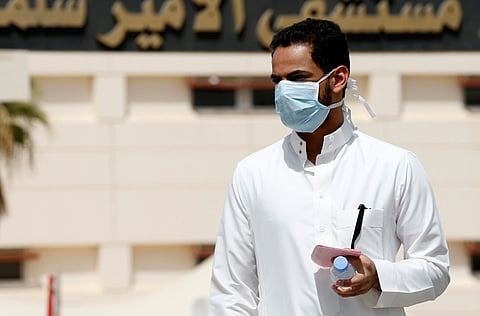Mers study to solve camels-to-humans transmission
Study expected to reveal how Mers coronavirus is transmitted from camels to humans

Dubai: The emirate may soon determine how the Mers coronavirus is transmitted from camels to humans in a scientific study that’s expected to be finished in less than three months, an expert said.
The Central Veterinary Research Laboratory (CVRL) on Tuesday began a scientific study on 1,000 camels to trace how the virus is transmitted from camels to humans. Recent studies have confirmed this virus transmission but no study has so far pointed out how.
“Through this study we will know how the virus is transmitted to humans and for how long,” Dr Ulli Wernery, scientific director of CVRL, told Gulf News.
Some 1,000 camels of different ages from different localities — used for breeding, milking, and racing — will be tested.
Two nasal swabs, blood and stool samples, and raw milk from lactating camels will be taken for the study.
“We have to test raw milk because no one knows if virus transmission is possible through it. Pasteurised camel milk poses no danger,” Dr Wernery said.
Some 50 samples will be tested daily at the high-security laboratory in two to three months. Six dedicated researchers, including Dr Wernery, are involved in the study.
The Ministry of Environment and Water and other concerned agencies have been informed about the research.
Should a camel test positive for the virus, other camels that had come in contact with it will be tested as well. Standard precautionary measures set by the ministry will apply.
Eng Saif Al Shar’a, Undersecretary of the Agricultural and Animal Affairs Sector at the ministry, said many measures are in place should there be positive cases of any epidemic or infectious disease outbreak.
“The Ministry of Environment and Water designs and implements epidemiological active surveillance and monitoring programmes on an ongoing basis for the detection of infectious and contagious animal diseases in different animal species including camels,” Al Shar’a told Gulf News.
All camel farms are mandated to notify the ministry on the condition of their flocks. The ministry then collects and analyses data related to animal health in UAE.
“Through the surveillance, reporting and monitoring systems, the health situation of camel flocks and farms in the different emirates of the country is stable and there are no notifications for unknown or epidemic outbreaks and diseases except individual cases of diseases that are usually recorded over the year,” Al Shar’a said.
As a precaution, the ministry immediately imposes a quarantine on infected farms or premises. Entry of persons into the infected farms is limited to the lowest possible level. Animal movement is also controlled to contain the infection. Infected premises are cleaned and disinfected while people in contact with the infected animals are quarantined and tested as well. Imported animals are also inspected and tested at cross-border points.



